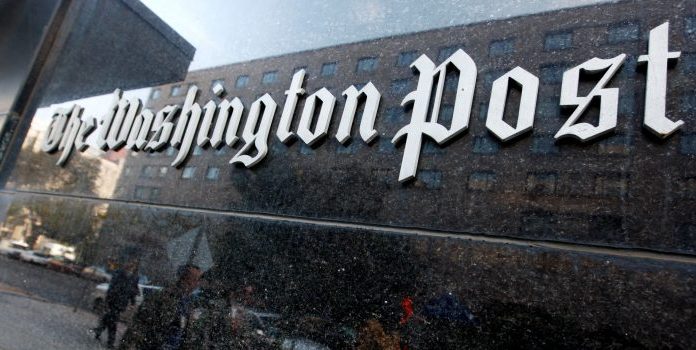(Ken Silva, Headline USA) The Washington Post’s roughly 7,000-word article Monday about the DOJ’s Jan. 6, 2021, Capitol Hill investigation is making waves this week—due in large part to its suggestion that Donald Trump will soon be charged over the matter.
But one of the article’s main narratives is demonstrably false. Citing a slew of anonymous sources and documents, the Post claimed in its report that DOJ and FBI officials took a hands-off approach to the J6 investigation to maintain the appearance of impartiality.
“[FBI Director Chris] Wray and his team sought to avoid even an appearance of top-down influence by having local field offices run investigations and make day-to-day decisions,” the Post said. “In fact, when it came to the Jan. 6 investigation, agents noticed that Wray did not travel the five blocks from FBI headquarters to the bureau’s Washington field office running the investigation for more than 21 months after the attack.”
This description by the Post runs directly counter to disclosures made by FBI whistleblowers.
Indeed, in his recently published memoir, former FBI special agent Stephen Friend said the FBI’s Washington DC officials maintained a tight control on J6 cases throughout the country. According to Friend, J6 cases were delegated to field offices around the country only on paper, while in reality they were controlled from DC.
“FBI Headquarters and the Washington Field Office were still running the cases. Opening one large January 6th case or even opening separate cases for each subject was acceptable and within FBI [rules]. If the Washington DC field office was the office of origin, case agents in Washington DC could cut leads to the field. Instead, the cases were designated for investigation by all 56 field offices,” Friend wrote in True Blue: My Journey from Beat Cop to Suspended FBI Whistleblower.
“This is a radical deviation from FBI DIOG rules … For all intents and purposes, special agents in Washington, DC, were working as case agents in absentia.”
Friend isn’t the only whistleblower to allege that DC controlled the direction of the J6 cases. Retired FBI agent George Hill made an even more shocking disclosure that the DC field office withheld Capitol Hill surveillance footage from other offices, due to fears that the footage could reveal undercover agents or informants.
“The [Washington field office] said, ‘We can’t show you those videos unless you can tell us the exact time and place those individuals were in the Capitol’, to which [Boston agent] responded back: ‘Why can’t you just give us access to the 11,000 hours of video?’” Hill said in an interview to the House Weaponization Subcommittee, which was played live during a hearing last month.
According to Hill, the DC office then responded, “Because there may be undercover officers or confidential human sources on those videos, whose identity we’d need to protect.”
The Post’s story did not address the discrepancies between its anonymous sources and the FBI whistleblowers.
Ken Silva is a staff writer at Headline USA. Follow him at twitter.com/jd_cashless.

